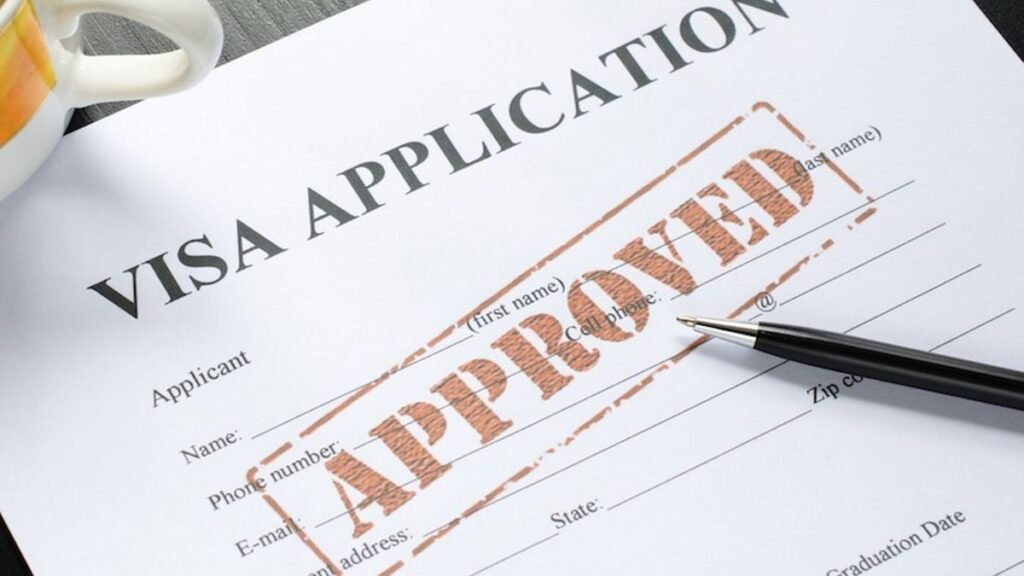With the beginning of 2025, the US government has made a big change in the visa rules and implemented many new guidelines. Now all applicants seeking US visa will have to share their social media information. This new rule has alerted students, working people, tourists and professionals around the world.
The purpose of this change is to strengthen the national security of America and curb visa fraud. However, with this, the visa process has become more complex, lengthy and full of scrutiny than ever before.
What is the purpose of America’s new visa policy?
The US has long been an attractive center for education, employment, tourism and family reunion for people around the world. But in view of the changing global scenario and security threats, the US government has now made the visa process more stringent and transparent than ever before.
Under the new rules, applicants will now have to provide their:
- Social media profiles
- Details of previous travels
- Information related to financial status and family relationships.
2025 New Visa Policy – At a Glance
| Detail | Information |
|---|---|
| Department | US Department of State / USCIS |
| Policy | Mandatory submission of social media information in visa process |
| Country | United States |
| Effective Year | 2025 |
| Visa Fee | $160 – $500+ (depends on visa type) |
| Key Changes | Stricter documentation, extended background checks, detailed interviews |
| Official Website | https://travel.state.gov/ |
Why is social media information made mandatory?
The US government believes that an applicant’s social media activity helps to understand his or her conduct, intent, and connections with foreign networks.
For example:
- Violent views on a profile,
- Posts related to suspicious activities,
- or radical content – all of these can lead to visa denial.
- So now while applying for a visa, you will have to provide information about your social media activity for the last 5 years.
Documents required for visa application

- Valid passport
- Visa application fee receipt
- Passport size photograph (in US format)
- SEVIS payment receipt (for F/M visa)
- I-20 form (for student visa) or offer letter from employer (for work visa)
- Documents showing your financial situation
- Previous visa and travel records
- From now on – social media accounts information
Impact on students and working professionals
- The new policy has the most profound impact on students and professionals who want to obtain visas to study or work in the US.
- For students: Universities will now have to confirm the applicant’s full course attendance and financial self-sufficiency.
- The student will also have to prove that he is going to the US only for the purpose of studies.
- For working professionals: The employer will be required to demonstrate that he/she needs a foreign talent due to lack of one in the country.
- Any negligence on the documents may be a reason of its rejection or delay.
Visa interview now more stringent
The visa interview process has also been made more stringent and detailed than ever before.
The interview will now ask:
- Information about your family ties
- Proof of your connection to the country (eg – job, property, bank statement)
- The purpose and result of your previous foreign trips
- Questions related to your social media behavior
- You will have to show truth, clarity and firmness in your answers.
How to prepare for the new visa process?
- Organize all documents – passport, photos, forms, certificates
- Clean up social media profiles – remove suspicious posts
- Practice for interviews – think of answers to potential questions in advance
- Neatly dressed and on time is a must
- Provide strong proof of your country – this proves that you will return after the trip
What if the information is incomplete or incorrect?
- A small mistake can send your file to “Administrative Processing”
- Intentionally providing incorrect information can also result in a 10-year ban
- Inconsistent information found in social media profiles can result in visa rejection
Conclusion
With the new visa policy in the US in 2025, the journey has certainly been made very tough by the applicants, but as long as one is prepared, tells the truth, and is properly documented, then getting a visa is not impossible And, in case you also planned to visit US, this is the right time to re-check your social media activities and documents in order to avoid any obstacles in the future.
FAQs
Q1. What is the new US visa policy introduced in 2025?
A. The U.S. has introduced stricter visa rules requiring applicants to share social media details, undergo tighter background checks, and provide more documentation to ensure national security.
Q2. Is it mandatory to share social media accounts in the US visa application?
A. Yes, all applicants must now disclose their social media handles from the past five years on their DS-160 or DS-260 visa application forms.
Q3. Why is the U.S. asking for social media information?
A. This is part of enhanced screening to detect potential threats, verify applicant intentions, and assess credibility through online behavior.
Q4. What happens if I don’t provide my social media details?
A. Omitting or refusing to provide social media information can lead to visa denial or delays in processing your application.
Q5. What kind of social media platforms are included?
A. Common platforms such as Facebook, Instagram, Twitter (X), LinkedIn, TikTok, YouTube, and other listed networks are included in the application.



